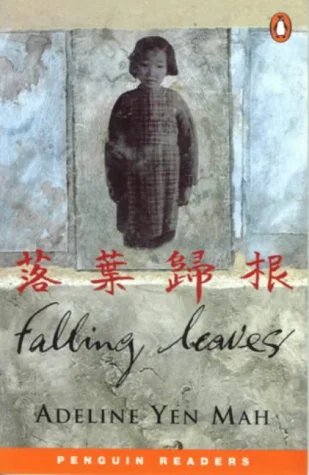We do not know what date Adeline Yen Mah was born.
Her father’s birthday was Nov.30, and as was the custom in pre-Communist China, he used that date and the year of the child’s birth, 1937, on her birth record. Working through her childhood experiences led her to become an international bestselling author of the autobiography Falling Leaves: The True Story of an Unwanted Chinese Daughter.
In 1937, the world was on the edge of being engulfed in another international war. During Mah’s childhood in Shanghai, the ancient city was a battleground for various political, ethnic, and religious groups trying to exert control during the Second Sino-Japanese War. But even during global crises, family troubles can impact children and their future deeply. Within two weeks of her birth, Mah’s mother died, leaving her husband with five children to raise. The new baby was considered “bad luck” from that point on and treated with hostility.
Regardless of this treatment, teenage Mah wrote books and plays based on her experience that won school awards. Her aunt Baba was an early feminist, working in the banking industry and eventually helping to found and run the Shanghai Women’s Bank in 1924. Though Mah’s father and stepmother tried to keep Mah from her aunt, her biography credits her Aunt Baba with making her life bearable.
Her father, a millionaire by then, used his wealth to dictate her life. He might have seen her as “bad luck,” but her accolades for school and writing impressed him, and he paid for her to attend college overseas at London Hospital Medical School. While she depended on her father’s money, Mah didn’t follow his wishes fully and became an anesthesiologist. When her father died in 1988, his will cut her off from all family wealth.
After many years of success in America, Mah was able to write again, this time writing her autobiography, Falling Leaves, in 1997. The story of her childhood would be considered abusive today. In the book, Mah states that part of surviving was adopting different roles depending on the situation, a skill often developed among members of oppressed groups and survivors of childhood abuse. She received letters from other Chinese women over the years telling her that it was very common for life to be harsh for daughters, particularly those connected to tragedy. Once this book became a huge seller, she stopped practicing medicine and became a full-time author.
Two years later, Mah’s second book, Chinese Cinderella, was published. This book is a stripped-down version of her autobiography written for children, and sold as well as her first book. Since then, she has written more children’s books and books about Chinese culture in an attempt to foster greater understanding between East and West. Se is also the president of the Falling Leaves Foundation, which she founded in 2010. Soon after this, she helped create the website Chinese Character A Day, which helps people learn Mandarin Chinese online.
Mah’s cross-cultural promotion also extends from China to the West. In 2010, she teamed up with The University of Hong Kong to establish the Falling Leaves Foundation Prize in Cross-Cultural Studies in English/English Literary Studies for a final-year, full-time student earning a bachelor’s degree in Cross-Cultural Studies in English or English Literary Studies.



